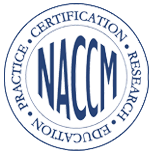Parkinson’s Awareness Month: What is Parkinson’s Disease?
It’s officially Parkinson’s Awareness Month– an international observance that takes place every April. Over the years, this incredible month has become a global event that highlights the need for more research, a greater understanding of the condition, and increased support for people affected by it.
When a loved one is struggling with Parkinson’s disease, it can be challenging to understand what they are going through. To help bring more awareness and understanding about this condition, let’s explore what Parkinson’s disease is and how it affects those living with it.
What is Parkinson’s Disease?
Parkinson’s disease is a progressive neurodegenerative disorder that affects a person’s movement and coordination. It’s caused by the gradual reduction in dopamine-producing cells, which are responsible for sending messages through the nervous system that controls movement. This leads to various symptoms, such as tremors and difficulty with coordination.
One of the most challenging aspects of Parkinson’s disease is that it affects not only the person with the condition but also their loved ones. Caregivers may experience significant emotional and physical strain as they support and assist their loved one.
Overall, Parkinson’s disease is a complex condition that can take a significant toll on those affected by it. Understanding the impact of Parkinson’s disease on all aspects of a person’s life is crucial for providing effective support and care to those affected by this condition.
Symptoms of Parkinson’s Disease
The symptoms of Parkinson’s disease can vary from person to person, but there are several common symptoms to be aware of. Identifying these symptoms early on is crucial for getting a proper diagnosis and starting treatment.
- Tremors: The most recognizable symptom of Parkinson’s disease is tremors, which typically occur in the hands, arms, or legs. These tremors are often present when the affected limb is at rest and may disappear or lessen when the person moves.
- Rigidity: Parkinson’s disease can cause stiffness and rigidity in the muscles, making movement difficult and uncomfortable. This stiffness can also affect facial muscles, causing a blank or expressionless facial expression.
- Slowness of movements: People with Parkinson’s disease may have difficulty initiating movement, and movements may be slower and more deliberate than usual.
- Difficulty with coordination and balance: Parkinson’s disease can affect balance and coordination, making it more difficult to maintain good posture and balance while standing or walking.
- Changes in speech: Parkinson’s can also affect speech, causing a softening or slowing of the voice, as well as a monotone or mumbled speech pattern.
Due to the progressive nature of Parkinson’s disease, it’s important that individuals seek medical attention as soon as they start to experience any of the above symptoms consistently. Early detection is key in helping to manage and treat the condition. Additionally, early intervention may help slow down the progression of the disease and improve the quality of life for those affected by it.
Treatments for Parkinson’s Disease
Although there is no cure for Parkinson’s disease, there are treatment options that can help improve the individual’s quality of life and reduce symptoms. The most common treatments include medications and physical/speech therapy.
Various medications have been developed to manage Parkinson’s symptoms by supplementing or replacing dopamine in the brain. The most commonly prescribed medications are levodopa and dopaminergic agonists, both of which help to improve motor function by increasing dopamine levels in the brain. Additionally, some anticholinergics can be used to reduce tremors.
Physical and speech therapy are two other necessary forms of treatment for Parkinson’s disease. Physical therapy helps to improve motor function and coordination, while speech therapy can help with problems related to communication. Speech therapists can work with individuals to help them develop strategies to improve their speaking abilities, express themselves better, and respond appropriately in social situations. By combining medications and therapy, individuals can better manage symptoms and continue to engage in daily activities with greater ease and independence.
The Impact of Parkinson’s on Seniors
Parkinson’s disease can significantly impact seniors, both physically and emotionally. The condition can cause a range of symptoms that affect seniors’ ability to perform daily activities, leading to a potential need for specialized care. In addition to physical impacts, seniors with Parkinson’s disease may experience emotional effects such as depression and anxiety and a sense of loss of control over their lives.
Furthermore, Parkinson’s disease can impact seniors’ ability to participate in social activities and maintain relationships, leading to isolation and loneliness. It can also increase the risk of falls and injuries and cause other health problems such as difficulty swallowing and constipation. Seniors with Parkinson’s disease require access to specialized care and support to manage symptoms and maintain their independence and overall quality of life.
The Importance of Parkinson’s Awareness Month
When your loved one has Parkinson’s disease, its impact on them and those around them can be immense. Parkinson’s Awareness Month is a time to raise awareness about this debilitating condition and support those affected.
It’s important to spread knowledge about the disorder in order to help reduce the stigma associated with it and increase understanding of its symptoms and treatments. Additionally, raising awareness of the disease can lead to increased research into potential treatments and therapies that could help improve the quality of life for those affected by it.
By advocating for Parkinson’s awareness, we can come together to support those living with the condition and make a real difference in their lives. During this month, individuals can participate in fundraising activities or events to help support Parkinson’s research and organizations. People can also share resources with family and friends, like educational materials and support groups.
Whether you are personally affected by Parkinson’s disease or just want to get involved, there are many ways to help spread awareness of this disorder during Parkinson’s Awareness Month. Through education and support, we can make a difference in the lives of those living with Parkinson’s disease.
Managing Parkinson’s Disease Together
A care manager can provide individualized support to seniors with Parkinson’s by helping them manage their symptoms and maintain an optimal quality of life. Care managers are specially trained to recognize the unique needs of those with the condition and can provide valuable assistance navigating the healthcare system.
At Reflections Management and Care, we understand that managing Parkinson’s disease can be challenging for seniors and their families, which is why our team of experienced care managers is dedicated to providing personalized support. From developing individualized treatment plans and helping with everyday tasks to coordinating services, our care managers are here to help every step of the way.
If you or someone you know is in need of care management services for Parkinson’s disease, contact Reflections Management and Care today. Our team is ready to provide the compassion and support needed during this difficult time.
This Parkinson’s Awareness Month, let’s come together to raise awareness about this condition and support those living with it. Through spreading knowledge and providing compassionate care, we can make a real difference in the lives of individuals affected by Parkinson’s disease.














